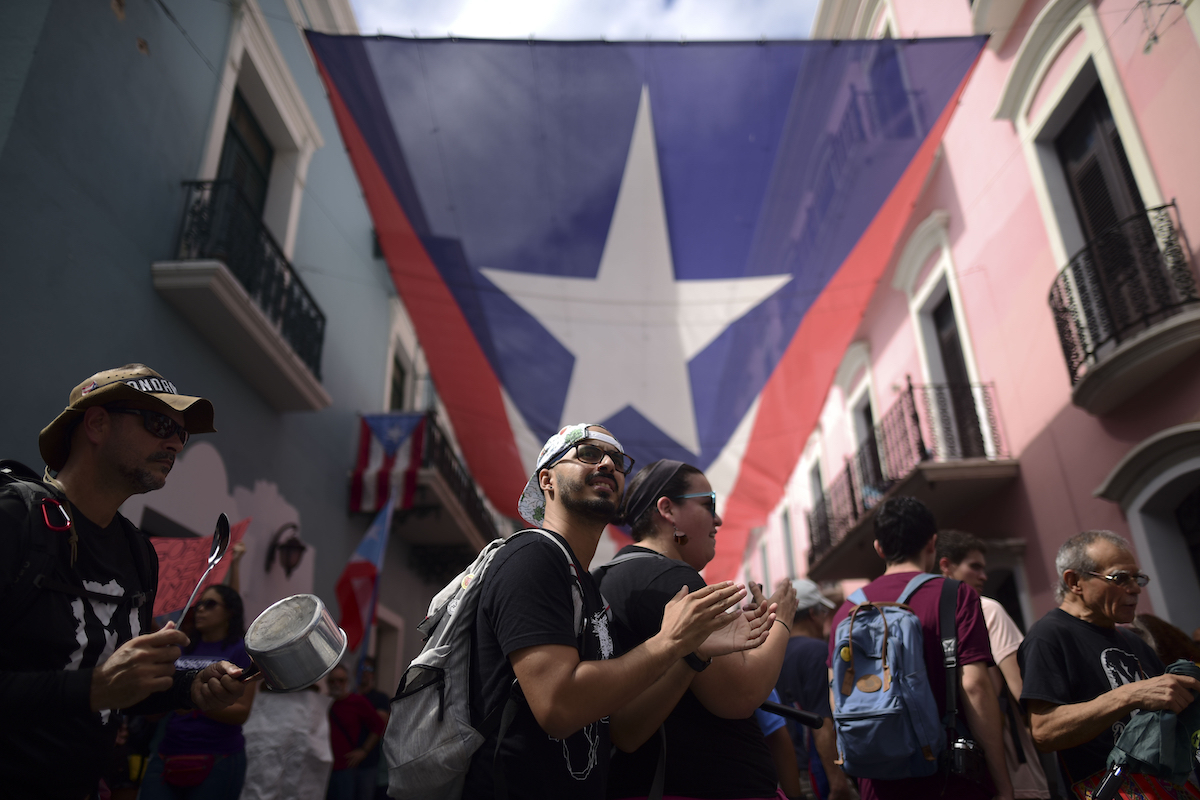

(AP Photo/Carlos Giusti)
Last August, Reps. Nydia Velázquez and Alexandria Ocasio-Cortez, along with 20 other representatives, submitted the Puerto Rico Self Determination Act of 2020 to the House of Representatives. The act would recognize the right of Puerto Rico to call a status convention through which the island’s residents would exercise their natural right to self-determination and establish a mechanism for congressional consideration. A revised version is expected to be resubmitted soon.
On its surface, the act explains that the United States must recognize the rights of the people of Puerto Rico but does it provide Puerto Ricans the right to “freely determine their political status and freely pursue their economic, social and cultural development?” That quote is part of who the United Nations defines “self-determination.”
The act orders Puerto Rico’s legislative branch to call for a status convention, and once the people of Puerto Rico approve the outcome presented, “Congress may approve it, and if Congress ends before acting on the self-determination option, the Puerto Rico status convention may meet again and send or resend a self-determination option to Congress.” Despite these efforts, Congress will be required to create the Congressional Bilateral Negotiating Commission to advise the delegates of the status convention.
The proposed act provides an abysmal mischaracterization of a self-determination process. A self-determination political process is just a process where the people of Puerto Rico freely determine their political status to pursue their economic, social and cultural development by regulating its own commerce with foreign nations and among other states and by creating laws for the general welfare of the people of Puerto Rico.
If this act truly recognized these rights, I wonder why Congress “may approve” the people of Puerto Rico’s choice when in reality Congress must approve any selected political choice, if it is truly committed to Puerto Rico’s self-determination. Lastly, if the people of Puerto Rico choose independence from the United States, I also wonder how much time Congress will wait to “approve it.”
These legal inconsistencies trouble me. When the people of Puerto Rico select either statehood, independence or any other form of political association during its status convention, Congress may or may not approve it. This congressional step leaves the door blatantly open for Congress to not recognize any of the political options the people of Puerto Rico select.
In other words, a perpetual colonial status for Puerto Rico.
Contrary to this act, the United Nations has declared that the mere existence of colonialism impedes the economic, cultural and social development of the dependent people. Any action that interferes with the right of dependent countries to be independent must cease and nothing should serve as a pretext for delaying independence.
Noting that the only inherent right the people of Puerto Rico have is to be freely independent, does this act just serve as a pretext for delaying Puerto Rico’s independence process? Regardless of what Puerto Rico decides with this act, Puerto Rico may never have the freedom to determine its political status and freely pursue its economic, social and cultural development because Congress “may or may not approve it.”
This act, as well as many of the others presented, is just another manifestation of colonialism because it leaves Puerto Rico under the colonial blanket of its master. Give Puerto Rico the right to regulate its own commerce with any foreign nation or others, and also to legislate for the general welfare of the people of Puerto Rico and only after that can we talk about a “self-determination process” to change our political system.
***
Antonio A. Camacho is a Puerto Rican, former military officer, war veteran, and an attorney, as well as an operations and logistics management consultant. The author does not have a financial or lobbying relation with the subject discussed. Twitter: @ohcamaca.



Statehood should not even be a choice because it’s not a decolonizing option! Anything that allows for statehood is colonialism in its final conclusion.
[…] Esta opinión fue originalmente publicada en Ingles y traducida al Español exclusivamente para La Voz Digital de Puerto Rico. La versión en Ingles se encuentra en: Camacho, A. (2021, February 23). Why I don’t support the Puerto Rico Self-determination act of 2020 (opinion). Retrieved February 26, 2021, from https://www.latinorebels.com//2021/02/23/dontsupportprselfdeterminationact/ […]
[…] commentators reject the bill because as written in its draft from, it does not create a process that binds Congress to act on […]